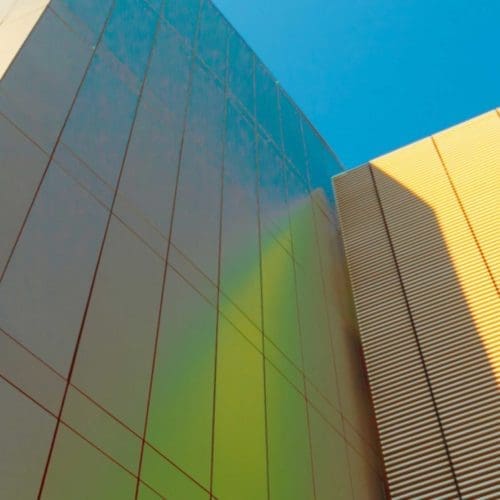Arbitration News: Who to arbitrate with?
October 2018Disputes whilst operating in the UAE
When agreeing on contract terms, most parties will include a dispute resolution mechanism. Where the parties have agreed to arbitration, usually the arbitration centre will be agreed in the contract.
Prior to agreeing on an arbitration centre in a contract, careful consideration should be given to which institution will work best for the parties and the likely disputes which may arise from the contract.
This article provides a brief comparison of the rules of the Dubai International Arbitration Centre (“DIAC”), the International Chamber of Commerce (“ICC”), the Abu Dhabi Commercial Conciliation and Arbitration Centre (“ADCACC”) and the Dubai International Financial Centre – London Court of International Arbitration (“DIFC-LCIA”).
Filing and arbitration costs
The issue of costs is one of the key factors in choosing an arbitral institution in particular where arbitration has been criticised as being an expensive method of resolving disputes.
Under DIAC rules, each Request to commence an arbitration, or to introduce a counterclaim, must be accompanied by a non-refundable Registration Fee of AED 5,000. The ICC requires that the request for arbitration be filed with the Secretariat along with an advance payment of USD 3,000 for processing. Under the DIFC-LCIA rules, the party referring the matter to arbitration must pay the AED 9,750 registration fee. Referring arbitrations to ADCACC carries with it a processing fee of AED 1,000.
Under the rules of all of the aforementioned institutions, the tribunal decides on the party bearing costs or in what proportion in its award. In the case of DIFC-LCIA arbitrations, unless the parties have agreed otherwise, the tribunal will determine the proportion of costs payable by parties.
Each institution charges fees in respect of the administrative and support services they provide throughout the arbitration. In general, fees charged by these institutions are often dependent on the size of the claim and the Arbitral Tribunal’s fees. ICC fees are based on a sliding scale which range from USD 3,000 (for disputes up to USD 50,000) to USD 98,515 plus 0.035% of amounts over USD 80m. ADCACC takes a different approach to the ICC and charges fees equal to 15% of the Tribunal’s fees for the services it provides.
DIAC fees are based on the amount of the claim with administration fees set out in the DIAC Table of Fees and Costs for Arbitration. DIFC-LCIA costs are based on a schedule of costs for Registrar and Deputy Registrar which currently stand at AED 1,300 and AED 650 and hour respectively. On top of these fees, the DIFC-LCIA also charges 5% of the Tribunal’s fees.
Average time in forming the tribunal
One of the benefits of arbitration is that the process can be much quicker than resolving a dispute by litigating in local courts. Once an arbitrator is selected, the parties may immediately start to address the dispute.
Under ADCCAC rules, if the parties agree that the Tribunal shall be made up of one or three arbitrators, each party should appoint an arbitrator within a maximum of 14 days from the date which the respondent was notified of the arbitration request.
The ICC procedure for appointment of a sole arbitrator requires parties to nominate an arbitrator by agreement within 30 days of the Request, failing which the ICC Court appoints an arbitrator. If three arbitrators are to be appointed, the parties must each nominate an arbitrator in their Request and Answer, respectively. The third arbitrator is nominated by the ICC Court unless there is an agreed procedure for nomination.
DIFC-LCIA rules allow for a longer period to form the tribunal. The LCIA Court shall appoint the Arbitral Tribunal promptly after receipt by the Registrar of the Response or, if no Response is received, after 35 days from the Commencement Date
Under the DIAC rules, where the parties have agreed that the Claimant and Respondent shall nominate an arbitrator and one fails to do so in the Request/Response or within any specified time limit in the arbitration agreement or additional time as may be allowed by the Secretariat, the Centre may proceed to appoint an arbitrator on behalf of the Claimant.
Involvement of overseeing body
Overseeing bodies or Executive Committees of arbitral institutions become involved in the arbitration usually at post-award stage to prevent the award suffering from defect in form or substance that could give rise to difficulties in enforcement of the award.
The LCIA does not scrutinise or approve awards, leaving it to the tribunal to render a valid award. This difference reflects the varying views about the value of the scrutiny process: some parties consider the additional quality assurance to be a benefit, while others see it as imposing unnecessary delay and expense.
Unlike the LCIA, the ICC is known for more intensive involvement in arbitrations. It will engage in a mandatory scrutiny and approval of draft awards of the tribunal. The ICC Court performs the scrutiny and may lay down modifications as to the form of the award and, without affecting the tribunal’s liberty of decision, may also draw the tribunal’s attention to points of substance
In relation to ADCCAC arbitrations, the Committee is the body in the Centre which is responsible for administering commercial arbitration cases. Its role includes making decisions on objections related to the validity of the arbitration before the constitution of the tribunal, deciding on arbitrator challenges, deciding on the seat in certain circumstances where it has not been agreed, and generally deciding any dispute between the parties which is not regulated by the rules and which arises before the constitution of the tribunal.
To deal with all procedural objections that may arise in relation to DIAC arbitration issues, the arbitration would be transferred to the Executive Committee for decisions. The Executive Committee for DIAC also becomes involved where there has been a failure to nominate an arbitrator by either party.
For further information on any of the issues covered here please contact Antony Smith (a.smith@beale-law.com / +44 (0) 20 7469 0406).
This is part of a series of mailshots. Please feel free to forward it on to colleagues. To register their details please email marketing@beale-law.com.
Download PDF







